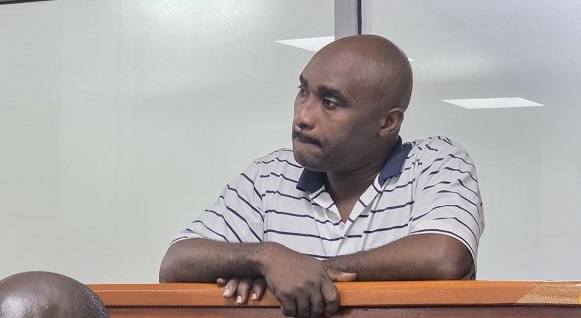Law
Teacher Jailed 46 Years for Defilement and Trafficking of Learners
The International Crimes Division of the High Court in Kampala has handed down a stringent 46-year prison sentence to Junior Tukwasibwe, a former teacher and social worker, for the egregious defilement, aggravated trafficking, and rape of three vulnerable learners.
Justice Richard Wejuli Wabwire delivered the landmark judgment on Friday, just a week after finding Tukwasibwe guilty on a total of six counts, which also included operating an unapproved children’s home.
In his ruling, Justice Wabwire condemned Tukwasibwe’s calculated abuse of trust, emphasising that the offences were not isolated incidents but rather a “pattern of systematic exploitation.” The court heard how Tukwasibwe, using his position of authority and deception, preyed on girls aged between 14 and 16 years, employing “threats of death, expulsion, and other forms of coercion” to perpetrate and conceal his heinous acts.
“This breach of trust and calculated abuse of authority heightened the moral culpability of the Convict,” Justice Wabwire stated.
The court ordered concurrent sentences of 46 years for defilement, 30 years for aggravated trafficking, and another 46 years for rape. Importantly, the six years Tukwasibwe has already spent on remand will be deducted from his sentence.
Beyond the prison term, Justice Wabwire imposed a court fine of 5 currency points (UGX 100,000) for operating an unapproved children’s home in Kabale. Furthermore, Tukwasibwe was ordered to pay a compensation award of UGX 5 million to each of the three victims, totaling UGX 15 million. This compensation is intended to address the profound psychological abuse, infliction of pain, and loss of dignity suffered by the victims, including the administration of non-consensual family planning injections and pills.
Tukwasibwe retains the right to appeal the sentence within 14 days should he be dissatisfied with the court’s decision.
The rigorous prosecution, led by Chief State Attorney Joseph Kyomuhendo, presented overwhelming evidence against Tukwasibwe. Kyomuhendo revealed that Tukwasibwe committed these crimes under the guise of an unlicensed Community Based Organisation called “Educate a Child Street Children Uganda,” which operated as a children’s home in Kabale between 2013 and 2018 before his arrest.
The court heard that Tukwasibwe, leveraging his background as a social worker and teacher, exploited the promise of educational sponsorship and shelter to lure vulnerable children into his care. Instead of providing a safe haven, Kyomuhendo told the court that Tukwasibwe operated an unregistered children’s home, which also served as his personal residence, creating an environment ripe for abuse.
The prosecution detailed multiple instances of sexual abuse, including rape and aggravated defilement, which reportedly occurred at his residence, in hotels across Kabale, Kisoro, and Ntungamo Districts, and even in his vehicle. Disturbingly, Tukwasibwe was found to have used family planning pills and injections on some of his victims, threatening them with the loss of sponsorship if they did not comply.
A particularly severe incident recounted in court involved a 19-year-old victim in August 2018. Tukwasibwe, under the pretense of shopping for his organization, drove her to a guest house, where he forcibly raped her, covering her mouth when she resisted. He then threatened her with expulsion and death if she disclosed the incident, before giving her UGX 30,000 and dropping her off.
Justice Wabwire cited these actions, including repeated demands for sex in exchange for assistance, reduced support as punishment for refusal, and the forceful sexual assault, as clear evidence of the “lascivious conduct” alleged by the victims.
This significant ruling comes just days after Godfrey Muwumuza, a teacher at Kabojja Junior School, was sentenced to four years and six months in jail for indecent assault and attempted homosexuality on a pupil during a school trip, highlighting a renewed focus on safeguarding children within educational and care settings.
Comments

























